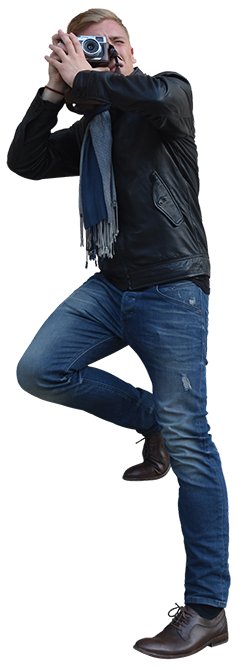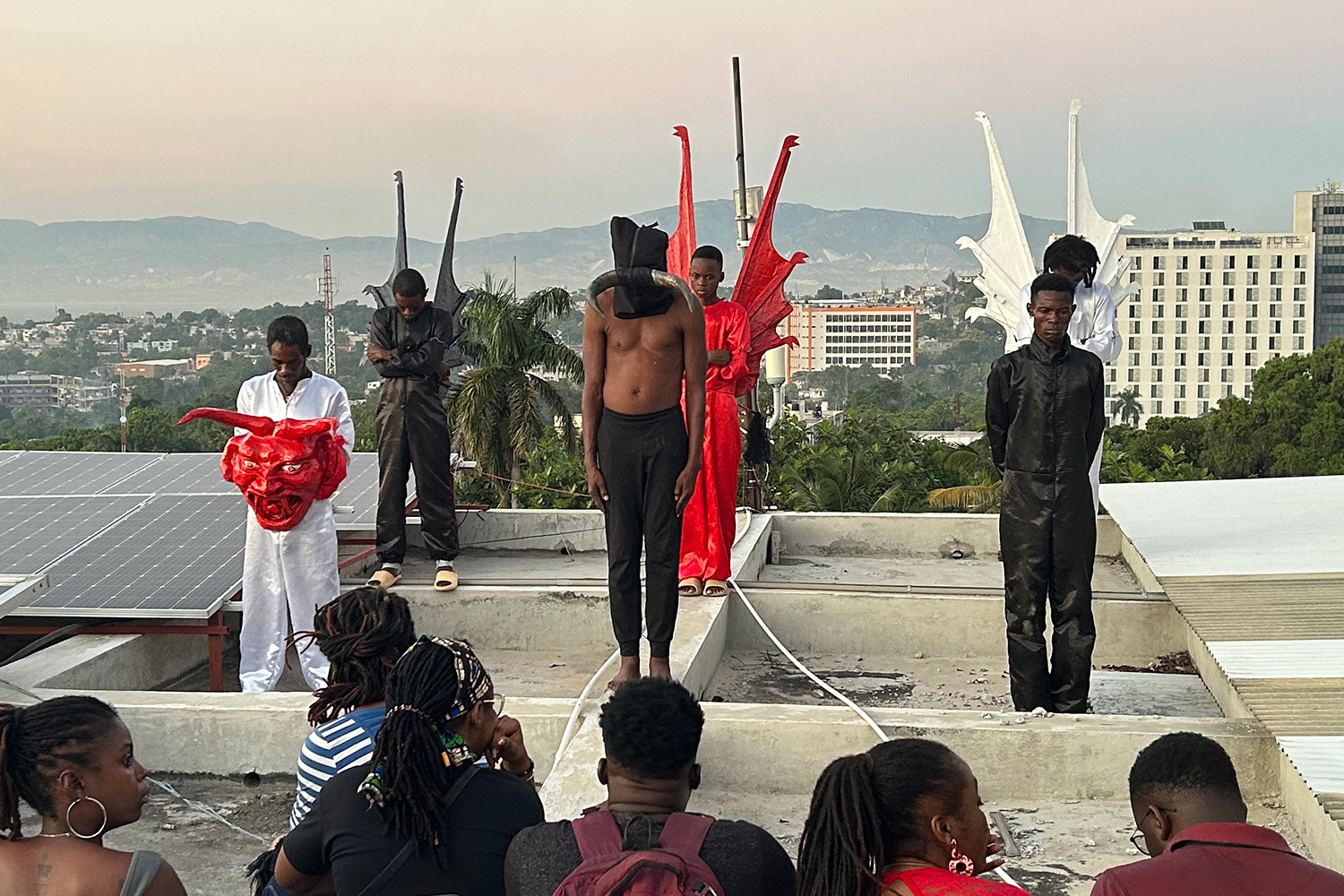
A rooftop performance in Port-au-Prince in the documentary "Koutkekout." (Photo courtesy of Quatre par Quatre Films)
Miami is often regarded as a gateway to the Americas. Latin American countries figure prominently in the art produced in South Florida, so why is it so difficult to gain access to stories from the Caribbean, by artists with strong ties to the Caribbean?
Third Horizon Film Festival aims to fill that gap every year, bringing shorts, documentaries and fiction features from these countries and territories to the Magic City for a weekend jam-packed with screenings, panels and other events.
A festival that places an emphasis on social issues inevitably raises a concern as to whether it will be filled with what I like to call "Eat Your Veggies Cinema," motion pictures that shine a spotlight on a series of subjects in a way that may cause them to come across as self-important and holier than thou.
Seeing “Koutkekout” (“At All Costs”), the engrossing Haitian-Canadian documentary that opened the eighth edition of Third Horizon at the Pérez Art Museum Miami on Thursday night, as well as two other features screening this weekend at the Koubek Center, rendered my trepidations unfounded. They sidestep the pitfall of placing the issues before the characters or interview subjects. They do not feel like taking your medicine.
Instead, the films showing this weekend use a familiar template, the coming-of-age drama, to explore how the shadow of colonialism continues to reverberate centuries later. It's time for local cinephiles to hit the pause button on their summer movie viewing and look to the southeast, to our neighboring lands a hop and a skip away, at least for a couple of days. Let's dig in.
“Kouté vwa” (“Listen to the Voices”): There's a boy carrying a drum down the street, and the elemental pull of that image sucks you right in. In this gripping docudrama set in French Guiana, summer vacations are not just for endless leisure and recharging one's batteries in between school years.
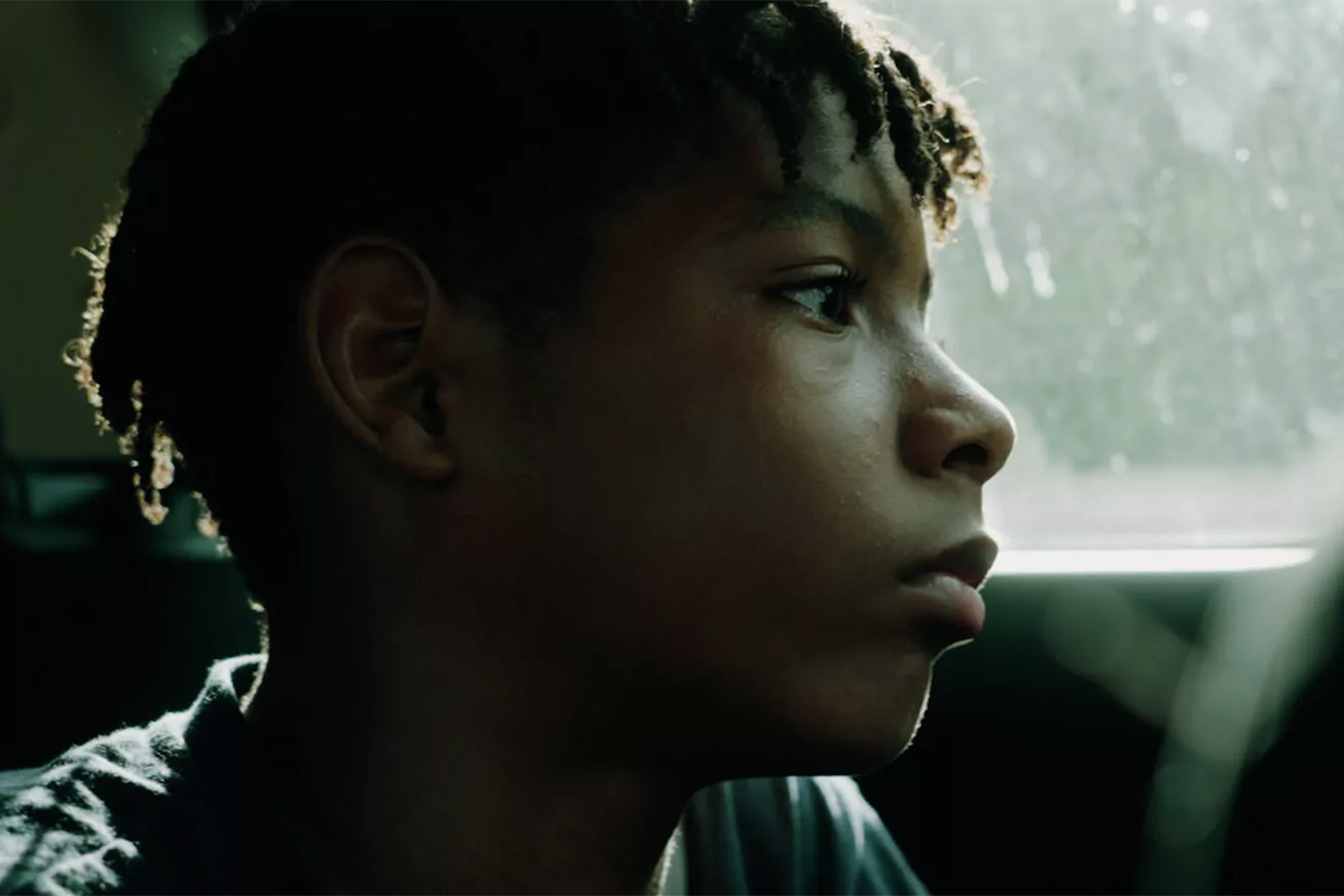
Melrick Diomar as Melrick in a scene from "Koute Vwa." (Photo courtesy of MoreThan Films)
It's 2023, and 13-year-old Melrick (Melrick Diomar) is spending some quality time with his grandma, Nicole (Nicole Diomar), before heading home to France. But this trip is different than previous ones, because it offers the teen an opportunity to learn more about his Uncle Lucas; he was stabbed to death at a party in March of 2012.
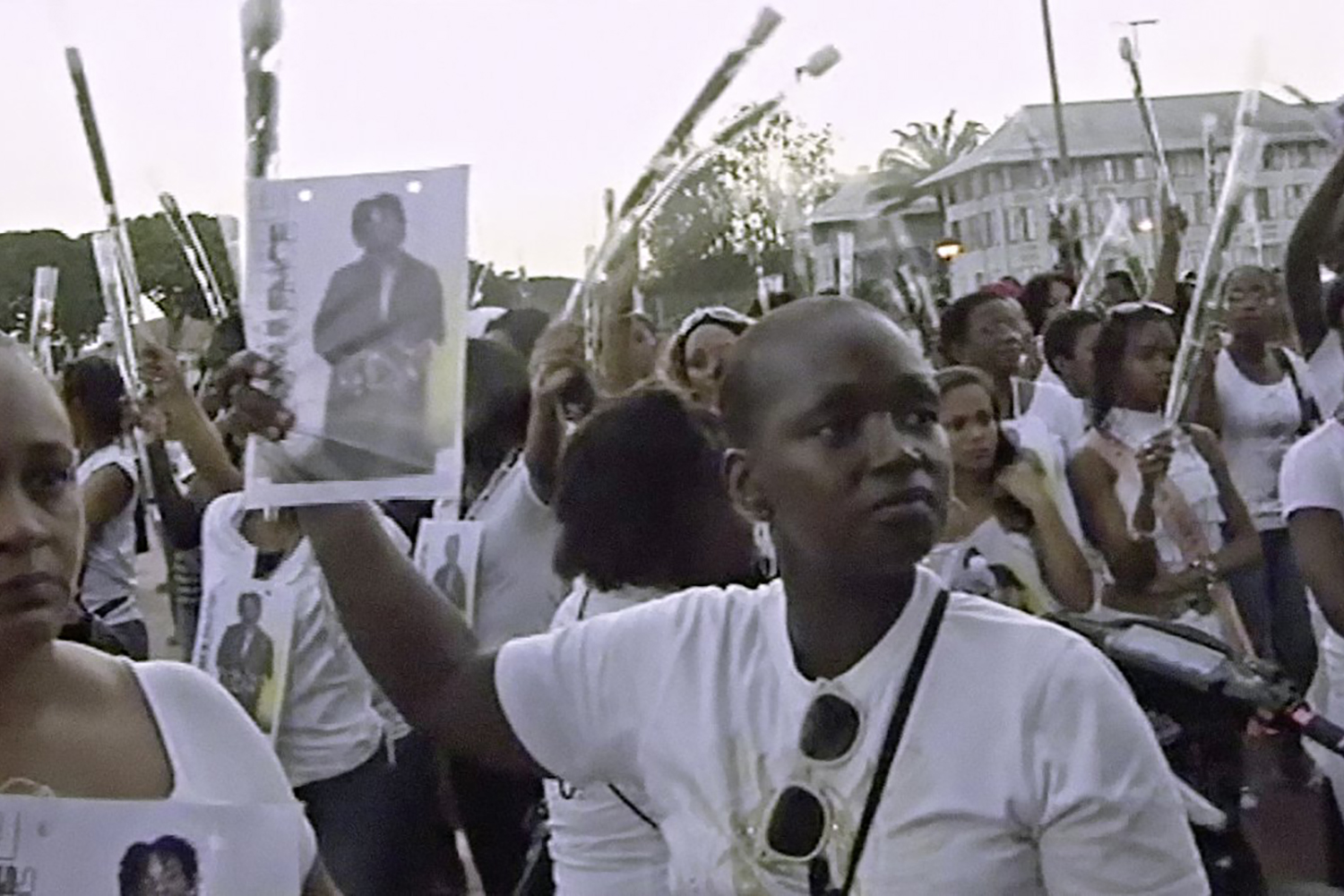
A march in DJ Turbulence's memory in "Koute Vwa." (Photo courtesy of MoreThan Films)
The characters and performers share the same first name because they're playing versions of themselves, and the violent event that weighs heavily on this family is not only real; it sent shock waves across the entire French territory, triggering protest marches and calls to put a stop to the bloodshed. Lucas, you see, wasn't just Lucas. He was better known as DJ Turbulence and was also an accomplished drummer.
“Kouté vwa” was directed and co-written by Maxime Jean-Baptiste, Lucas' cousin, who collaborated on the screenplay with his sister, Audrey Jean-Baptiste. What the siblings have done is to create a fictional story around real events, giving the scenes a lived-in naturalism that allows the filmmakers to insert the nonfiction elements gradually, in a way that doesn't feel contrived.
It does take some time for the film to snap into focus, causing some of the early scenes to feel a tad aimless, such as when Melrick is hanging out with local teens, and when he's fretting over whether he's got what it takes to play the drum at a special tribute for Lucas.
But rounding out the central trio of characters is Yannick (Yannick Cébret), Lucas' best friend, who was injured on the night of the stabbing and is still grappling with the magnitude of his loss. His scenes, as he opens up about his unresolved feelings, bring thematic cohesion to this slim narrative.
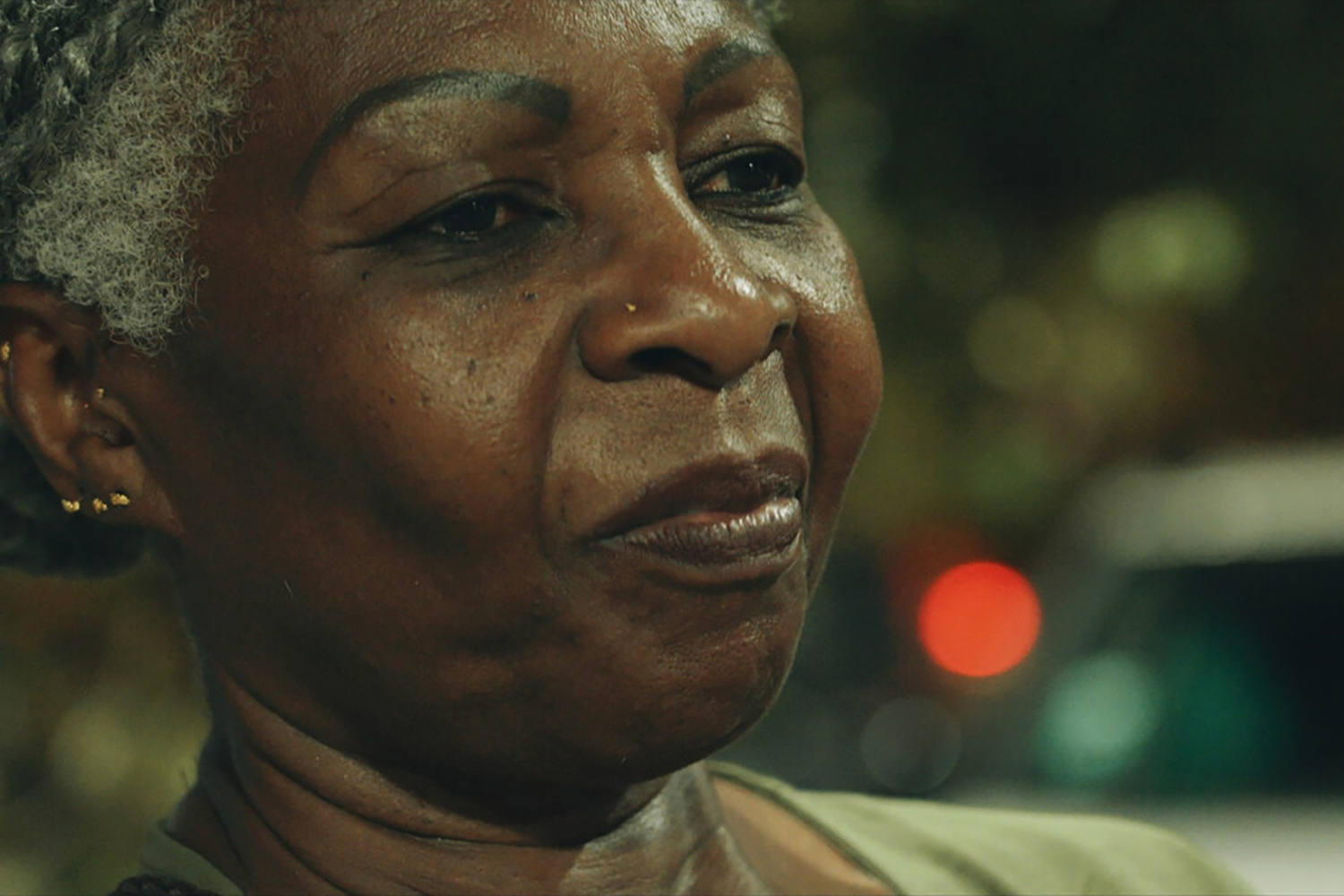
Nicole Diomar as Nicole in a scene from "Koute Vwa." (Photo courtesy of MoreThan Films)
This is Maxime's debut feature, and you can feel his confidence behind the lens build as the film progresses, leading up to the scene that makes the movie. Nicole is driving Melrick, and when he expresses doubt that justice has been served to those responsible for taking Lucas' life, she shares a personal anecdote that's as riveting and suspenseful as anything in a police thriller. It highlights the intimacy that makes “Kouté vwa” a moving, visually arresting portrait of grief, forgiveness and cultural identity. For the Jean-Baptistes, simplicity is golden, and in “Kouté vwa,” it shines like a beacon.
“Sugar Island”: The tall sugarcane fields threaten to blot out the sky, and they close in on a teenage girl's dreams of freedom and escape, in this atmospheric, bracingly ambitious portrait of the Dominican Republic as a country that's so shackled to its past, it dehumanizes a vast swath of its population.
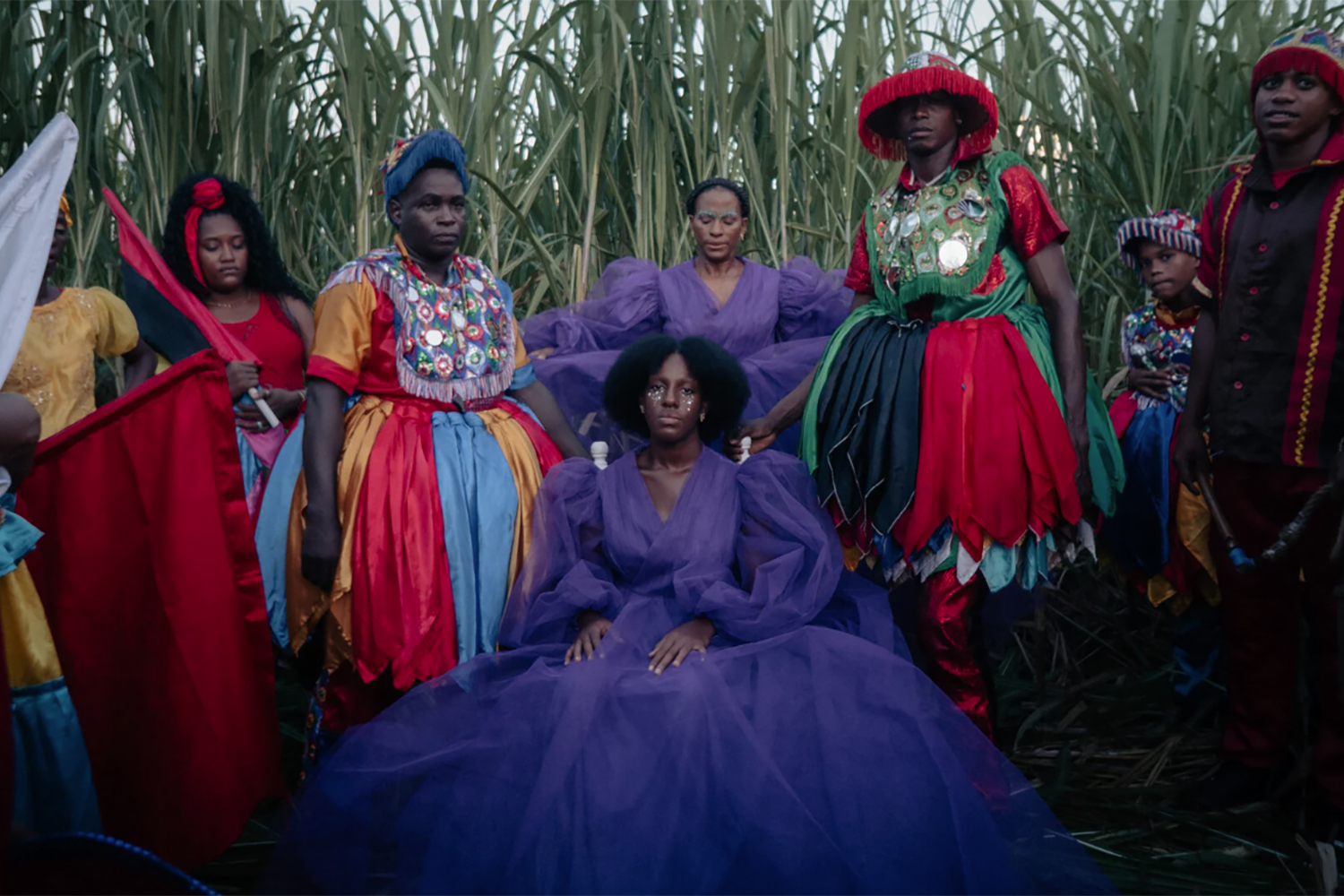
Yelida Diaz as Makenya and Ruth Emeterio as Filomena (center, in purple) in a scene from "Sugar Island." (Photo courtesy of ArtMattan Prods.)
Makenya (Yelidá Díaz), headstrong and independent, is 14 but looks considerably older. She discovers she is pregnant, the result of a night of passion, coupled with some naïvété on her part. Life comes at her hard when she encounters the obstacles that come from being an undocumented Dominican-Haitian teen who is looked down upon by the very frontline workers who should care for her well-being.
But “Sugar Island” is also the story of the “batey,” a community of sugarcane workers, where Makenya lives with her mother Filomena (Ruth Emeterio) and her grandfather (Juan Maria Almonte). They're staring down the barrel of obsolescence when Leroi (Diogenes Medina), their boss and Makenya's godfather, acquires machinery that cuts down on time and labor.
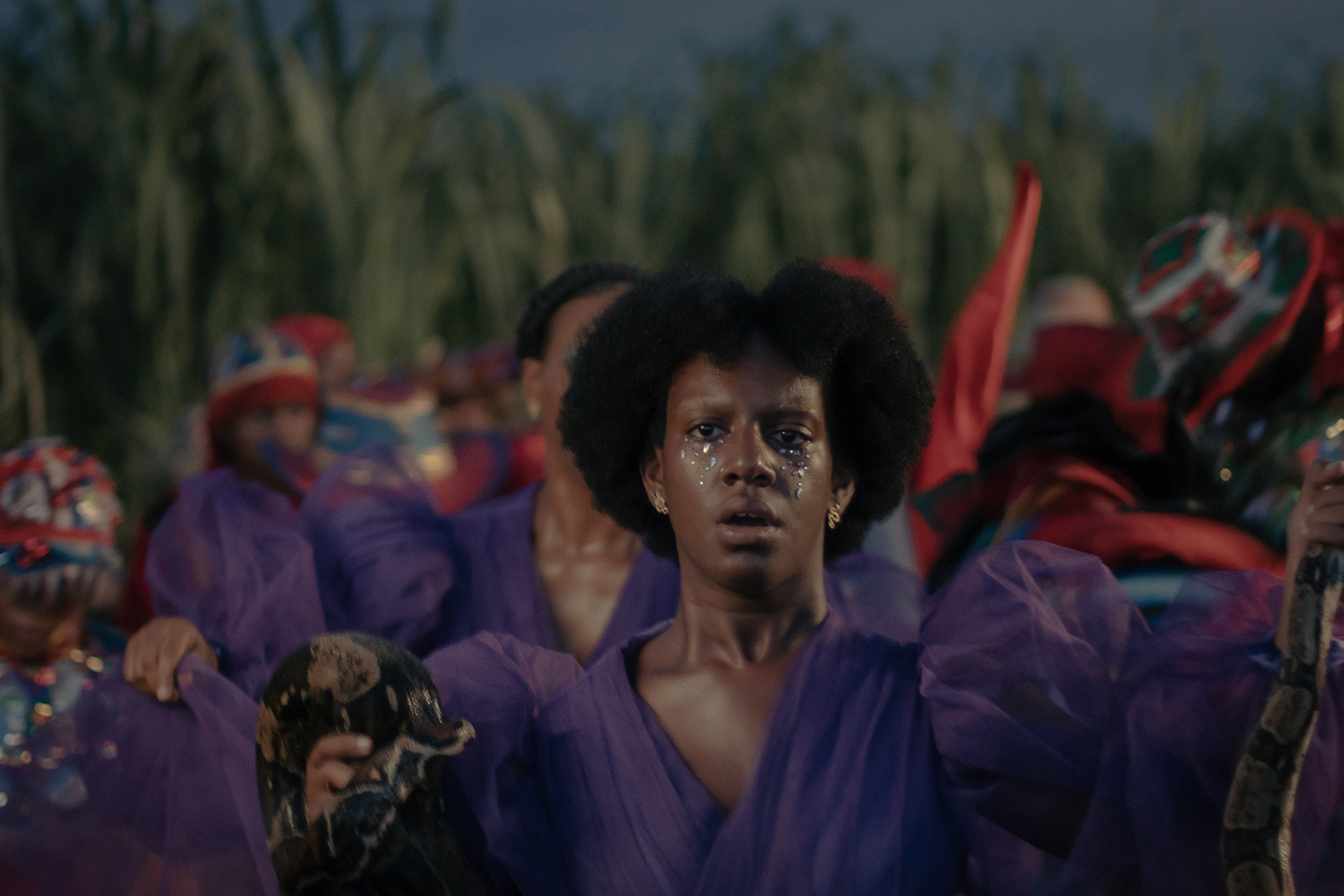
Yelida Diaz as Makenya in a scene from "Sugar Island." (Photo courtesy of ArtMattan Productions)
Director/co-screenwriter Johanné Gómez Terrero, who shot the film in her hometown of San Pedro de Macorís, juggles the plight of these sugarcane workers, who stand to lose their pensions due to these new developments in the name of progress and efficiency, with a foray into Afro-Dominican spirituality. Some nifty Afrofuturistic imagery serves as the backdrop for an exploration of the parallels between the discrimination happening today and the island's slave trade in the 16th and 17th centuries, as the characters read aloud from real documents from the period. It plays like an entertaining history lesson and theater rehearsal rolled up into one lush academic exercise.
“Sugar Island” possesses enough thematic breadth for at least four separate films, and Gómez Terrero is unable to weave all of these threads into a cohesive whole. But even as you feel like you're being pulled in different directions, there's a meticulous artistry to the mise en scène, with sumptuous visuals, vividly lensed by cinematographer Alván Prado, that bring to mind the work of “The Cell” and “The Fall” auteur Tarsem Singh, as well as Julie Dash's “Daughters of the Dust.” There's also a surreal quality to the film's dreamlike sequences that fans of Alejandro Jodorowsky's films will likely recognize.
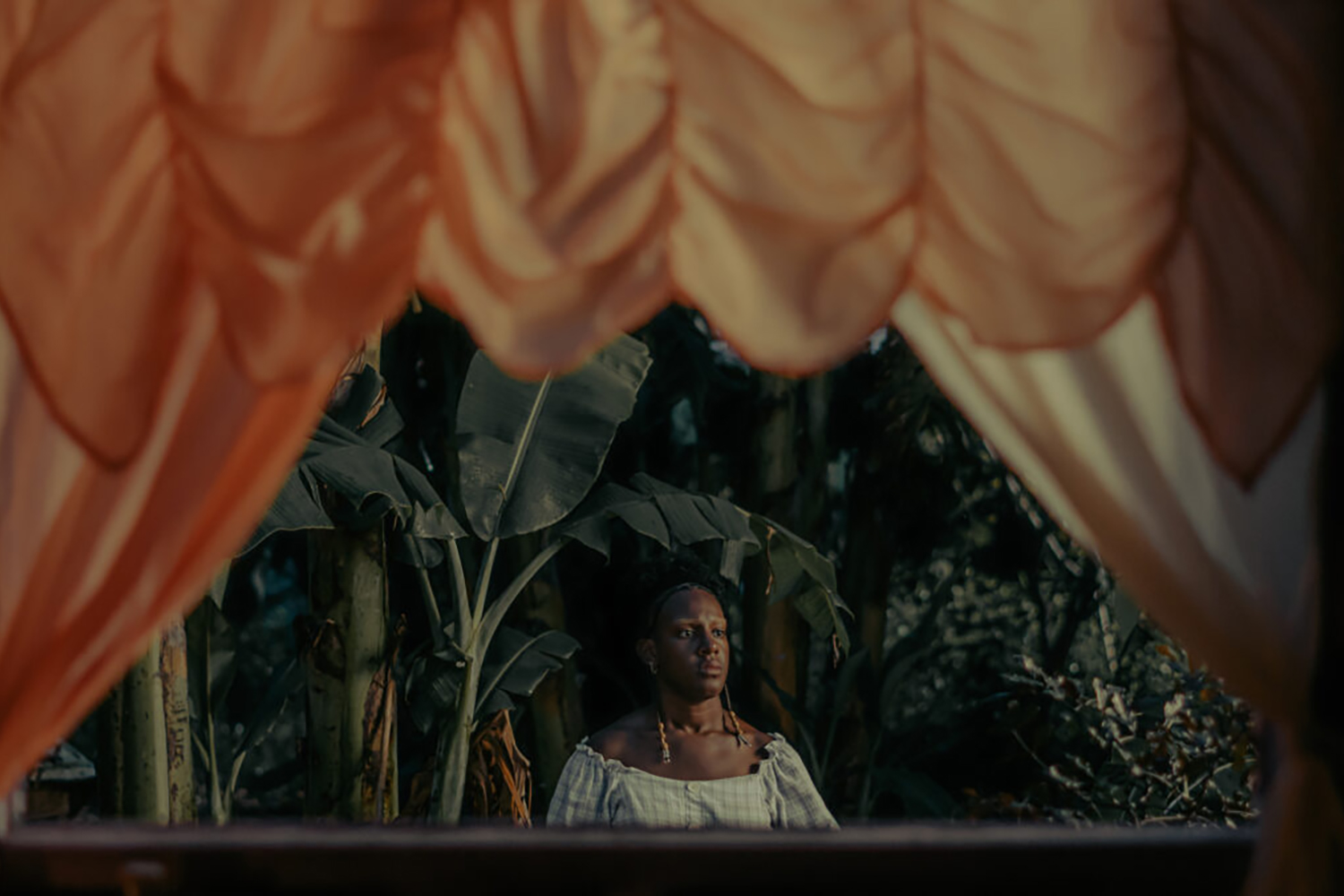
Yelida Diaz as Makenya in a scene from "Sugar Island." (Photo courtesy of ArtMattan Productions)
Gómez Terrero gets more than a little carried away with the symbolism, including an old chestnut of depicting Christian iconography as the purveyor of oppression, but even when “Sugar Island” comes across as self-consciously arty, she strives to give a voice to those without the means to make themselves heard. That commitment to bring about change, as well as the movie's richly textured surfaces, elevate this uneven hybrid of kitchen-sink drama, social problem film and fever dream that tries to be so many things all at once.
“Kouté vwa” screens Friday, May 30 at 8:30 p.m. at the Koubek Center and will feature a post-screening Q&A with Audrey Jean-Baptiste. “Sugar Island”screens Saturday, June 1 at noon, also at the Koubek Center, and will feature a post-screening Q&A with Johanné Gómez Terrero. More information about the Eighth Third Horizon Film Festival at thirdhorizonfilmfestival.com.
 MAIN MENU
MAIN MENU

